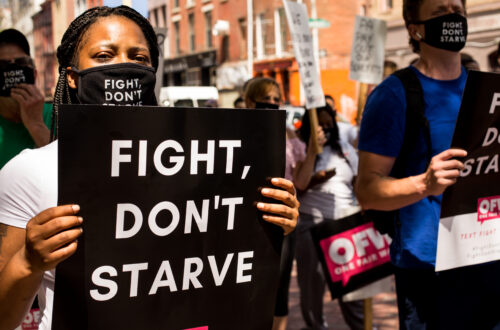In recent years, anti-protesting laws have been introduced and passed at an exponential rate in state legislatures across the United States.
According to the International Center for Not-for-Profit Law , 45 states have considered some form of anti-protesting policies since 2017. More than 200 bills have been proposed and 42 bills have been enacted.
Florida, in particular, is home to some of the severest anti-protesting laws. The Combatting Public Disorder bill was signed into law in 2021, expanding the scope of protests that would be considered a riot and created new criminal charges for participants in “violent or disorderly assemblies.”
Anti-protesting laws may increase penalties and fines for protest participation, empower governors or state policing agents to disperse gatherings, or even eliminate police liability for wounding or killing civilians when controlling riots as anti-protesting policies.
The protests and the wider Black Lives Matter movement have been used to justify this growing trend. For instance, post-George Floyd protests have seen an exponential increase in anti-protesting laws enacted across the country.
Based on data from the 2016 and 2020 American National Election Survey, anti-protesting laws could produce the unintended effect of actually increasing protest behavior rather than reducing it.
States with anti-protesting laws had a significantly smaller percentage of people who participated in protests in comparison to states without protesting laws, according to the data. These states include Arkansas, Indiana, Kentucky, Louisiana, Mississippi, Ohio, Oklahoma, Tennessee, Texas, Utah, West Virginia and Wisconsin. The passage of more restrictive anti-protesting policies is successful in reducing protestors.
Bar Graphs displaying states without protest laws versus states with protest laws in 2016 and 2020. December, 11th 2023. Data visualization created by Simone Liang and Paulina Trujillo on R Studio from ANES Data.
Additionally, anti-protesting laws don’t have a radicalizing effect. The penalties and fines imposed by more restrictive anti-protesting laws negatively influence protest behavior. This draws to question the impact of these policies on the state of democracy as a whole.
In our manipulation of data, the percentage was done proportionally so larger states and smaller states could be compared in a more standardized way.
For example, the state of California has a high population while the state of Wyoming has a low population. Having a proportional representation was key to having data that best reflected the number of people participating in protests across different states.
By understanding how anti-protesting policies impact protest behavior and social movements, the impact of these policies on Western democracies as a whole can be understood.
Rebellion and resistance serve as integral aspects of democracy, which are restricted by the current landscape of anti-protesting laws. This begs the question, are anti-protesting policies inherently anti-democratic?
From a wider and more global lens, social movements play an important role in influencing policy-making progress. For instance, the Mar Verde movement, also known as the Green movement in Latin America, has been integral in passing more progressive abortion laws.
Protests serve as a vital instrument for social movements, fostering support for diverse issues crucial to democracy. The imposition of new restrictions on such expressions of dissent poses a threat to the fundamental ideal of progress, echoing Frederick Douglass’s wisdom that “[if] there is no struggle, there is no progress.”
Featured Image: A protest in the wake of the murder of George Floyd in Washington, D.C June 6th, 2020(Unmodified photo by Ted Eytan used under Creative Commons License)
By: Paulina Trujillo and Simone Liang





